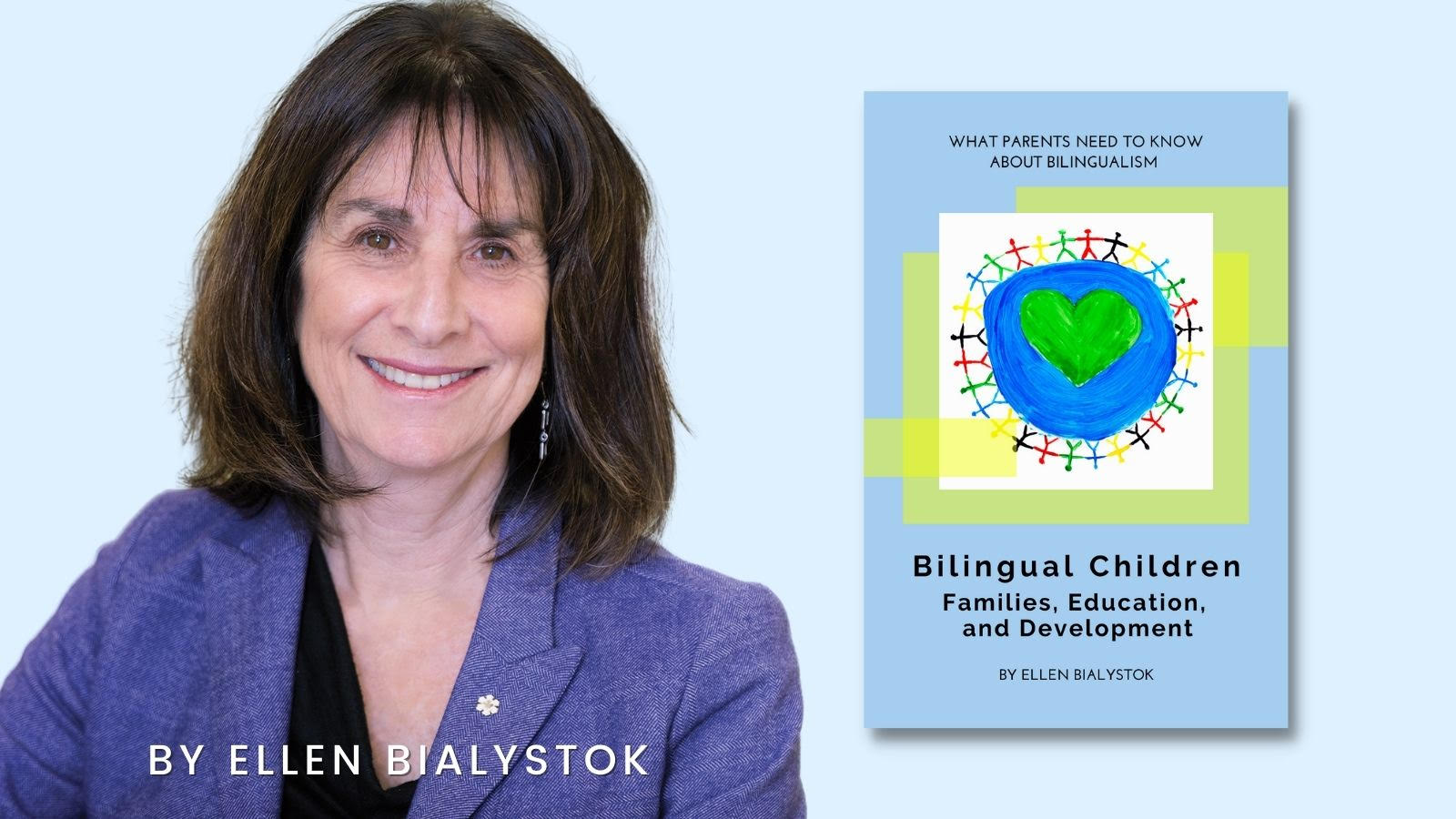Languages matter!
By Marcia Banks
Conversation with Professor Ellen Bialystok, April 28, 2023, Geneva, Switzerland.
Professor Ellen Bialystok, Ph.D., FRSC, is Distinguished Research Professor at York University in Toronto and Associate Scientist at the Rotman Research Institute of the Baycrest Centre for Geriatric Care. She is renowned for her cutting-edge research on the effects of bilingualism on cognition.
Professor Bialystok has shown that learning and speaking more than one language reshapes the mind and brain, from infancy to old age, and can significantly impact on how we switch attention between tasks, brain development and our concentration.
In her most recent book, Ellen Bialystok addresses what we know about multilingualism, acquisition of foreign languages and its effects on children and their families.
Why should we be interested in her research?
Languages matter! Our experiences and our abilities as we acquire languages impact our cognitive, our social and our emotional lives. For instance, bilinguals appear to perform a little bit better than monolinguals on tasks that involve switching between activities and inhibiting previously learned responses. Bilingual children have a more advanced ability to solve problems in which there is a misleading perceptual information than comparable monolingual children who are otherwise at the same developmental stage of learning.
Here are some other take-aways:
- There is no evidence that bilingual children are confused by early bilingualism, and the cognitive benefits associated with bilingualism run counter to the notion of “intellectual fatigue.”
- A one-person-one-language approach is neither necessary nor sufficient for successful bilingual acquisition.
- Infants learn language through listening to and interacting with different speakers. Infants need to have a lot of exposure to the sounds, words, and grammars of the languages that they will one day use.
- Both quality and quantity matter. High quality language exposure involves social interaction—infants do not readily learn language from television.
- It is important to consider the quantity of the exposure to each language. While a bilingual’s two languages do influence each other to a certain degree in many ways they travel on independent developmental paths.
- Bilingual children who hear a large amount of a particular language learn more words and grammar in that language. Bilingual parents thus need to ensure that their children have sufficient exposure to the languages they want their children to acquire.
- The one-parent / one language, the most popular model for acquiring multiple languages, does not really happen. It is too rule based.
- Just speaking, is the point. Keep both languages in your environment and use both as often as possible. Children are not confused.
- Due to the frequent switching between their languages and having to inhibit the irrelevant language in cases of lexical conflict, bi- and multilinguals constantly and unconsciously practise executive functioning – the ability to focus attention on the right action at the given moment.
Sample articles:
Bialystok, E. (2017). The bilingual adaptation: How minds accommodate experience. Psychological Bulletin, 143 (3), 233-262. (PDF)
Bialystok, E., Abutalebi, J., Bak, T. H., Burke, D.M., & Kroll, J.F. (2016). Aging in two languages: Implications for public health. Ageing Research Reviews, 27, 56-60. (PDF)
Grundy, J.G., Anderson, J.A.E., & Bialystok, E. (2017). Neural correlates of cognitive processing in monolinguals and bilinguals. Annals of the New York Academy of Sciences, 1396, 183-201 (PDF)
